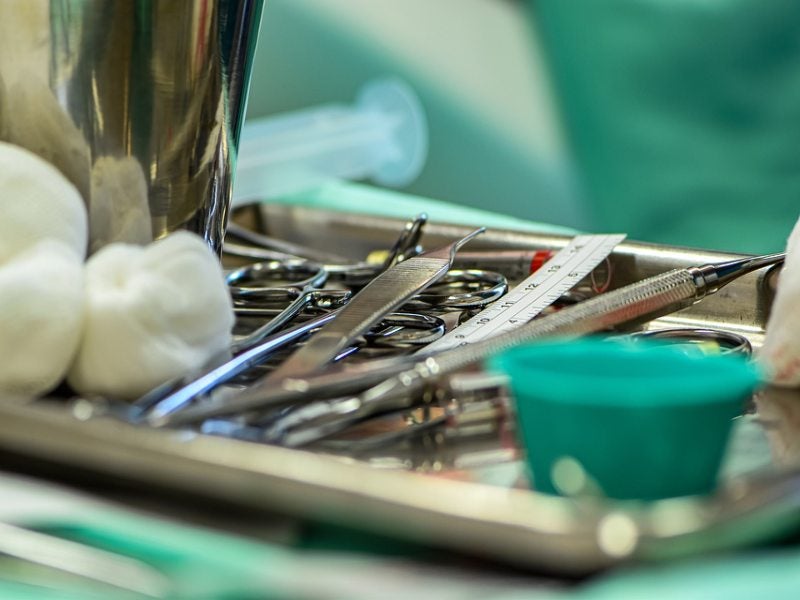
Entrepix Medical, a subsidiary operation founded by US-based Entrepix in 2017, has established itself as an independent medical device company.
Entrepix co-founder Tim Tobin will lead the new company with former Ulthera COO Bill Fender taking charge as president and chief operating officer and Dr Cliff Spiro as chief technology officer.

Discover B2B Marketing That Performs
Combine business intelligence and editorial excellence to reach engaged professionals across 36 leading media platforms.
Entrepix Medical’s proprietary Planatome Technology produces a patient-focused surgical scalpel blade designed to minimise surgically induced tissue trauma.
The company focuses on applying this nano-polishing technology used in microchip manufacturing to surgical devices.
Following the new development, Entrepix Medicalalso begun its Series A financing to support the commercial launch of ‘Planatome’s healing benefits’.
This $2m funding round was led by the company’s executive team and is being supplemented by investors from medical and semiconductor industries.

US Tariffs are shifting - will you react or anticipate?
Don’t let policy changes catch you off guard. Stay proactive with real-time data and expert analysis.
By GlobalDataTim Tobin said: “With billions of scalpels sold every year and huge clinical implications for Planatome Technology, we knew this venture needed a proven C-level medical device executive to ensure success.
“Now, with a properly funded, rockstar team in place, we are preparing for our upcoming commercial launch and genuinely excited to bring Planatome’s benefits to millions of patients around the world.”
In a separate development, medical technology company Medtronic has launched its FDA-approved InterStim Micro neurostimulator for sacral neuromodulation (SNM) therapy in the US.
This device is developed to treat overactive bladder (OAB), faecal incontinence (FI) and non-obstructive urinary retention. It also features SureScan MRI technology, which allows patients to undergo MRI scan without the prior impedance checks.
The first patient implant has been performed with InterStim Micro neurostimulator at Cleveland Clinic, said the company.
Meanwhile, the US Food and Drug Administration (FDA) has authorised Roche’s cobas EBV test for the Epstein-Barr virus (EBV) DNA in the US.
EBV is associated with a range of cancers in transplant patients, including post-transplant lymphoproliferative disorder (PTLD). EBV infection causes the virus to remain in the body in a latent form.
People with poor immune systems such as transplant patients are said to be prone to developing symptoms if the virus reactivates.
The approval allows healthcare professionals to monitor transplant patients at risk for complications from infections or reactivations of EBV.





